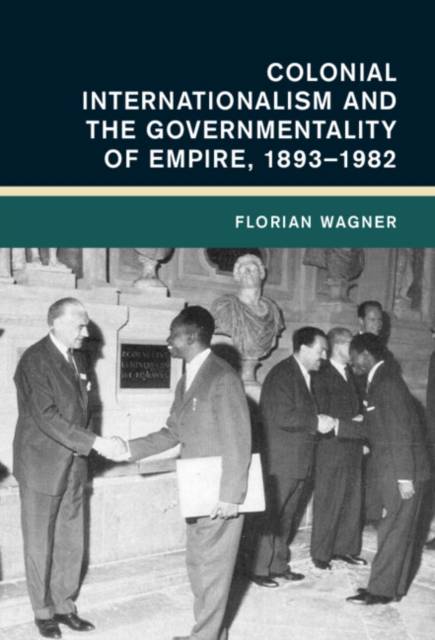
- Afhalen na 1 uur in een winkel met voorraad
- Gratis thuislevering in België vanaf € 30
- Ruim aanbod met 7 miljoen producten
- Afhalen na 1 uur in een winkel met voorraad
- Gratis thuislevering in België vanaf € 30
- Ruim aanbod met 7 miljoen producten
Zoeken
Colonial Internationalism and the Governmentality of Empire, 1893-1982
Florian Wagner
€ 172,95
+ 345 punten
Omschrijving
In 1893, a group of colonial officials from thirteen countries abandoned their imperial rivalry and established the International Colonial Institute (ICI), which became the world's most important colonial think tank of the twentieth century. Through the lens of the ICI, Florian Wagner argues that this international cooperation reshaped colonialism as a transimperial and governmental policy. The book demonstrates that the ICI's strategy of using indigenous institutions and customary laws to encourage colonial development served to maintain colonial rule even beyond the official end of empires. By selectively choosing loyalists among the colonized to participate in the ICI, it increased their autonomy while equally delegitimizing more radical claims for independence. The book presents a detailed study of the ICI's creation, the transcolonial activities of its prominent members, its interactions with the League of Nations and fascist governments, and its role in laying the groundwork for the structural and discursive dependence of the Global South after 1945.
Specificaties
Betrokkenen
- Auteur(s):
- Uitgeverij:
Inhoud
- Aantal bladzijden:
- 434
- Taal:
- Engels
- Reeks:
Eigenschappen
- Productcode (EAN):
- 9781316512838
- Verschijningsdatum:
- 24/02/2022
- Uitvoering:
- Hardcover
- Formaat:
- Genaaid
- Afmetingen:
- 152 mm x 229 mm
- Gewicht:
- 802 g

Alleen bij Standaard Boekhandel
+ 345 punten op je klantenkaart van Standaard Boekhandel
Beoordelingen
We publiceren alleen reviews die voldoen aan de voorwaarden voor reviews. Bekijk onze voorwaarden voor reviews.











